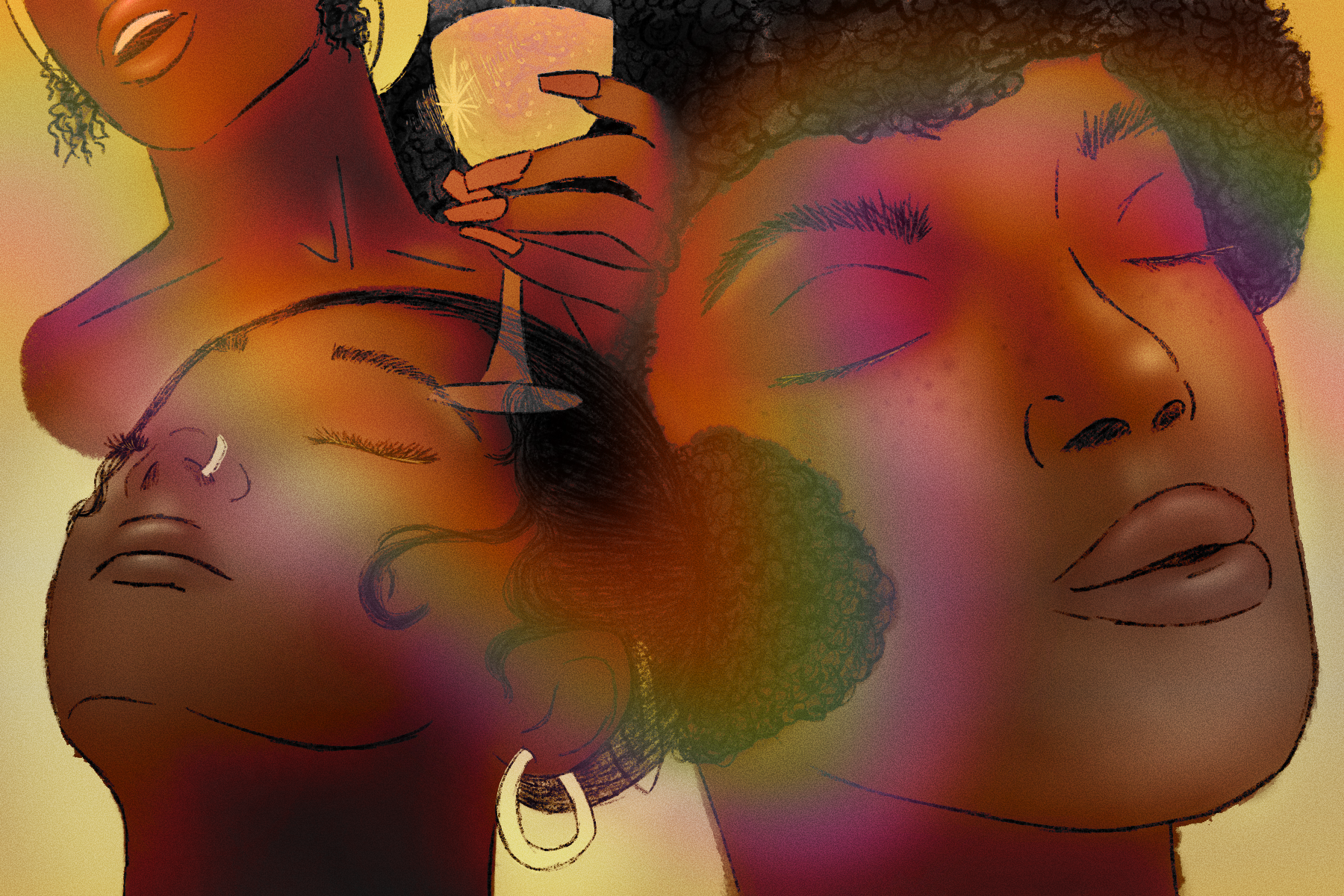Many women have found solace and empowerment in the “Soft Girl” era, a trend that has taken over social media platforms. This movement celebrates femininity in its various forms, encouraging individuals to become more reliant on others instead of solely yourself and shed societal shame surrounding hyper-feminine hobbies and aesthetics such as makeup and skincare. While women from diverse backgrounds have embraced this trend, it holds a unique historical significance for Black women, who infuse it with their own narratives and interpretations.
The resonance of the Soft Girl trend within the Black community is deeply rooted in the historical context of the Atlantic Slave Trade in the United States. Dating back to the 16th century, Black individuals — both free and enslaved — were subjected to systematic dehumanization. Within this oppressive society, the recognition of Black women’s femininity was socially denied. This perpetuated their dehumanization and further entrenching racial stereotypes. Sojourner Truth highlights this phenomenon in her speech at the 1851 Women’s Convention, “That man over there says that women need to be helped into carriages, and lifted over ditches… Nobody ever helps me into carriages… And ain’t I a woman?” During this time period, Black women were often portrayed as overly masculine figures compared to white women which further.
The Soft Girl era represents a stark departure from the entrenched stereotypes that Black women and girls have endured for centuries. These stereotypes come in different forms like the Jezebel Stereotype, which hypersexualizes Black women. The “Jezebel” was a way to justify the sexual exploitation of Black women during slavery in the United States. This stereotype has continued to have a negative impact on Black women since “40% of confirmed sex trafficking survivors in the U.S are African-American.”
The Angry Black Women trope is another perception that has a negative impact on Black women, which portrays any display of emotion from them as aggression. Studies show that “people in organizations believe Black women are more likely to have belligerent, contentious, and angry personalities, an assumption not as readily assigned to other men and women.” These damaging tropes have long plagued the community.
In the face of these harmful stereotypes, Black women are reclaiming their narratives through acts of self-care and self-expression. By participating in the Soft Girl trend, they assert their agency and challenge societal expectations that have sought to confine them to narrow, limiting roles. This movement allows Black women to redefine femininity on their own terms, embracing vulnerability, sensitivity and authenticity in a society that often seeks to diminish their humanity.
For many Black women, engaging with the Soft Girl trend is a form of resistance against white supremacy — an assertion of their right to exist and express themselves freely in a world that seeks to silence and marginalize them. It is a rejection of the notion that their worth is contingent upon their ability to conform to rigid standards of beauty and behavior and a celebration of their inherent value as multifaceted individuals.
Moreover, the Soft Girl trend serves as a platform for solidarity and community-building among Black women. Through shared experiences and mutual support, they affirm each other’s right to occupy space unapologetically, dismantling the barriers that have historically sought to divide and conquer them. In doing so, they forge bonds of sisterhood that transcend the boundaries of race, class and background, united in their shared struggle for liberation and self-determination.
In essence, the Soft Girl trend represents more than just a passing fad; it is a cultural phenomenon that holds profound significance for Black women seeking to reclaim their identities and assert their humanity in a world that often seeks to deny them both.
By embracing their femininity in all its complexity and nuance, Black women are rewriting the narrative of who they are and what they can be, carving out spaces of joy, beauty and resilience in the face of adversity. In the Soft Girl era, they find not only a style aesthetic but also a source of empowerment and liberation, transforming societal perceptions and reclaiming their rightful place at the forefront of the cultural ambiance.
Through this movement, Black women are not only reshaping societal perceptions but also reclaiming their power and paving the way for a future where they are truly seen, heard and celebrated. It fosters a sense of unity and solidarity, reminding Black women that they are not alone in their struggles and that together, they possess the strength to overcome any obstacle.
Ultimately, the Soft Girl era is a testament to the resilience and beauty of Black womanhood, shining a light on the inherent power and potential within each and every one of them.
















